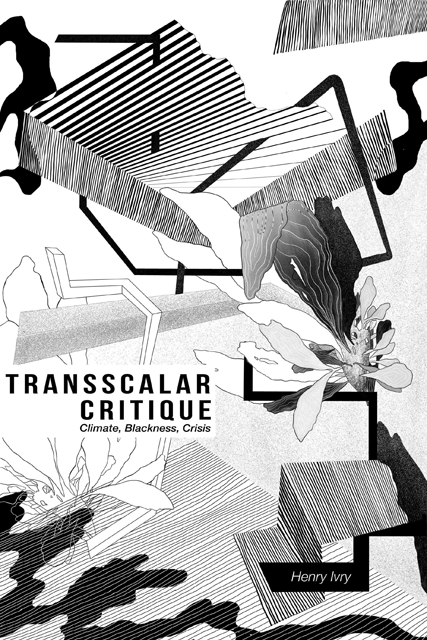Book contents
- Frontmatter
- Contents
- Acknowledgments
- Introduction: Ecologies of Crisis
- 1 Crisis Realism: Writing Economically, Thinking Ecologically
- 2 Global Weirding: Climate Crisis and the Anthropocene Imaginary
- 3 Transscalar Blackness: Race and the Long Anthropocene
- 4 Improbable Metaphor: Jesmyn Ward and the Asymmetries of the Anthropocene
- 5 Unmitigated Blackness: Paul Beatty’s Transscalar Satire
- Works Cited
- Index
2 - Global Weirding: Climate Crisis and the Anthropocene Imaginary
Published online by Cambridge University Press: 13 April 2023
- Frontmatter
- Contents
- Acknowledgments
- Introduction: Ecologies of Crisis
- 1 Crisis Realism: Writing Economically, Thinking Ecologically
- 2 Global Weirding: Climate Crisis and the Anthropocene Imaginary
- 3 Transscalar Blackness: Race and the Long Anthropocene
- 4 Improbable Metaphor: Jesmyn Ward and the Asymmetries of the Anthropocene
- 5 Unmitigated Blackness: Paul Beatty’s Transscalar Satire
- Works Cited
- Index
Summary
At the very moment when we should be remaking politics, we have at our disposal only the pathetic resources of “management” and “governance.”
Bruno Latour, Facing GaiaOne need not choose a particular scale at which to read; stories can be read at multiple scales simultaneously.
Christine Marran, Ecology Without CultureHalfway through Barbara Kingsolver’s 2012 novel, Flight Behavior, the protagonist, Dellarobia Turnbow, tries to explain the threat of anthropogenic climate change to her climate change-sceptic husband, Cub. Dellarobia wants to convince him that the monarch butterflies that unexpectedly landed on their property in rural Tennessee and the increasingly drastic fluxes in temperature are both symptoms of climate change. “The weather’s turned weird,” she tells him (260). It is a telling word choice: for Dellarobia, “weird” is the only adjective she can think of that maps these two seemingly disparate entities. But Cub pounces, twisting her language into the all-too-familiar tone of right-wing punditry, scoffing, “They don’t call it global weirding” (261). Dellarobia, used to the reticence of her husband, thinks about this for a second and realizes that he may have a point, conceding, “I know. But I think that’s actually the idea” (261). Dellarobia and Cub, repurposing the term briefly popularized by New York Times columnist Thomas Friedman, rehearse in miniature the difficulties we encounter when talking about climate crisis: it is not just changes in temperature that constitute our moment of anthropogenic climate crisis, it is something far weirder.
In this sense, Kingsolver is using Dellarobia to respond to a much larger renegotiation of what we mean by the “crisis” of climate crisis. This is a renegotiation that has plagued policy makers since the 1998 inception of the Intergovernmental Panel on Climate Change (IPCC). The international bellwether for climate change science and policy recommendations, the IPCC’s semi-regular Assessment Reports remain the benchmark for international consensus on anthropogenic climate change. But it was not until 2007 that the IPCC started thinking about global warming outside of temperature metrics. In 2007’s Fourth Assessment Report on Climate Change, the IPCC revises its 2001 Third Assessment Report, explaining, “Advances since the [Third Assessment Report] show that discernible human influences extend beyond average temperatures to other aspects of climate” (40). This is a crucial intervention into the stakes of crisis: climate crisis is no longer measurable as merely a rise in temperature.
- Type
- Chapter
- Information
- Transscalar CritiqueClimate, Blackness, Crisis, pp. 76 - 109Publisher: Edinburgh University PressPrint publication year: 2023



